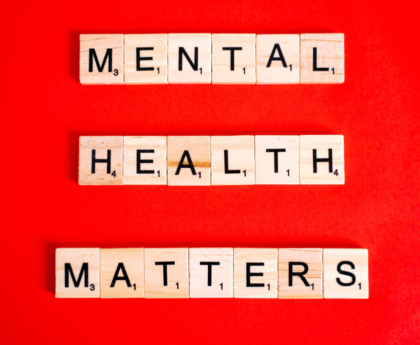In recent years, the connection between nutrition and mental health has gained significant attention. By 2025, the role of diet in supporting mental well-being has become a cornerstone of holistic health practices. Scientific advancements have shed light on how specific nutrients influence brain function, mood, and cognitive performance, leading to a growing emphasis on nutritional psychiatry.
This article explores the latest research and practical applications of nutrition in mental health, offering insights into how dietary choices can profoundly impact emotional and psychological well-being.
1. The Gut-Brain Connection: A Foundation for Mental Health
One of the most groundbreaking areas of research is the gut-brain axis, which highlights the bidirectional relationship between the gut and the brain. The gut is often referred to as the “second brain” because of its extensive neural network and role in producing neurotransmitters like serotonin, which regulates mood.
The Role of Gut Microbiota
- Diversity and Mental Health: A diverse gut microbiome is associated with better mental health outcomes, while an imbalanced microbiome is linked to conditions like depression and anxiety.
- Probiotics and Prebiotics: Foods rich in probiotics (e.g., yogurt, kimchi) and prebiotics (e.g., bananas, onions) support gut health, promoting a balanced microbiome and enhancing mood stability.
Dietary Impact on the Gut-Brain Axis
- Diets high in fiber, omega-3 fatty acids, and fermented foods positively influence gut health and, in turn, mental health.
- Conversely, diets high in processed foods, sugar, and unhealthy fats can disrupt the gut microbiota and contribute to mood disorders.
2. Nutrients Essential for Mental Well-Being
Scientific advancements have identified specific nutrients that play a critical role in mental health. By 2025, these findings have informed dietary recommendations and mental health treatment strategies.
Omega-3 Fatty Acids
- Found in fatty fish, flaxseeds, and walnuts, omega-3 fatty acids are essential for brain health.
- These fats have anti-inflammatory properties and are shown to reduce symptoms of depression and anxiety.
B Vitamins
- B vitamins, especially B6, B9 (folate), and B12, are crucial for neurotransmitter synthesis.
- Deficiencies in these vitamins are linked to increased risk of depression, cognitive decline, and mood swings.
Magnesium
- Magnesium, found in nuts, seeds, and leafy greens, plays a role in stress regulation.
- Adequate magnesium levels can reduce anxiety and improve sleep quality.
Vitamin D
- Known as the “sunshine vitamin,” vitamin D influences mood regulation and cognitive function.
- A deficiency in vitamin D is associated with an increased risk of depression.
Antioxidants
- Antioxidants, such as vitamins C and E, protect the brain from oxidative stress and inflammation.
- Colorful fruits and vegetables, like berries, spinach, and sweet potatoes, are excellent sources.
3. The Mediterranean Diet: A Model for Mental Health
The Mediterranean diet has emerged as a leading dietary pattern for mental well-being. Rich in whole grains, fruits, vegetables, nuts, seeds, and olive oil, this diet is associated with lower rates of depression and anxiety.
Key Components of the Mediterranean Diet
- Healthy Fats: Olive oil, avocados, and fatty fish provide omega-3s and monounsaturated fats, supporting brain health.
- Plant-Based Foods: High fiber intake promotes gut health, while antioxidants reduce inflammation.
- Moderate Dairy and Lean Protein: Sources like yogurt and poultry provide essential amino acids for neurotransmitter production.
Evidence Supporting the Mediterranean Diet
- Studies show that adherence to the Mediterranean diet reduces the risk of depression by up to 30%.
- The diet’s anti-inflammatory properties and its ability to support a healthy gut microbiome contribute to its mental health benefits.
4. Emerging Research in Nutritional Psychiatry
As of 2025, nutritional psychiatry has become a recognized field of study, focusing on how diet affects mental health. Researchers are uncovering novel insights into the complex relationship between food, the brain, and emotions.
Personalized Nutrition
- Advances in genetic testing and microbiome analysis have paved the way for personalized dietary recommendations.
- Tailored nutrition plans based on individual needs are shown to improve mental health outcomes more effectively than generalized diets.
The Role of Polyphenols
- Polyphenols, found in tea, dark chocolate, and berries, have been linked to improved cognitive function and reduced symptoms of depression.
- These compounds support brain plasticity and protect against neurodegeneration.
Intermittent Fasting and Mental Clarity
- Intermittent fasting, which involves alternating periods of eating and fasting, is associated with enhanced mental clarity and reduced anxiety.
- Research suggests that fasting may boost the production of brain-derived neurotrophic factor (BDNF), a protein essential for learning and memory.
5. Practical Steps for Integrating Nutrition into Mental Health Care
By 2025, healthcare professionals and individuals are prioritizing diet as a key component of mental health care. Here are practical strategies for incorporating nutrition into daily life:
1. Eat a Balanced Diet
- Focus on whole, nutrient-dense foods while minimizing processed and sugary options.
- Include a variety of fruits, vegetables, lean proteins, whole grains, and healthy fats.
2. Monitor Hydration
- Dehydration can impact mood and cognitive function. Aim to drink plenty of water throughout the day.
3. Mindful Eating
- Practice mindful eating by savoring meals and paying attention to hunger and fullness cues. This reduces overeating and emotional eating.
4. Limit Alcohol and Caffeine
- Excessive alcohol and caffeine consumption can exacerbate anxiety and disrupt sleep patterns. Consume these substances in moderation.
5. Consider Supplementation
- If dietary intake is insufficient, consult a healthcare professional about supplements, such as omega-3s, B vitamins, or vitamin D.
6. Addressing Barriers to Nutritional Mental Health
While the benefits of nutrition for mental health are clear, barriers such as affordability, access, and education remain. By 2025, initiatives are being implemented to address these challenges.
Community-Based Programs
- Governments and non-profits are launching programs to make nutritious food accessible to underserved communities.
- Community gardens, food banks, and cooking classes are helping individuals adopt healthier eating habits.
Educational Campaigns
- Public health campaigns are raising awareness about the connection between nutrition and mental health.
- Schools and workplaces are promoting healthy eating through education and access to nutritious options.
Policy Changes
- Governments are incentivizing the production and consumption of healthy foods while discouraging processed and sugary products through taxation and subsidies.
Conclusion: A Healthier Mind Through Better Nutrition
The role of nutrition in mental health is no longer just a theory but a well-established science. By 2025, advancements in research and the growing field of nutritional psychiatry are empowering individuals to harness the power of food to support mental well-being. From the gut-brain connection to the benefits of specific nutrients, diet plays a vital role in shaping emotional and psychological health.
As we embrace a holistic approach to mental health care, incorporating balanced nutrition into daily life is a simple yet powerful way to improve mood, cognitive function, and overall quality of life. By making informed dietary choices and advocating for equitable access to nutritious food, we can create a healthier, happier future for all.





